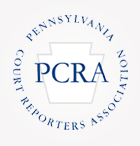Building a CoalitionSuccessful direct and grassroots lobbying is based, in part, on developing coalitions within your community with organizations and individuals that support similar legislative issues. By developing coalitions within your community, you are uniting many different constituencies under a common cause which makes your message more effective when speaking with legislators. There is no better way to influence the legislature than through an organized grassroots campaign. Once you have built a coalition of key players, you need to call them to action. Your call to action may include: requesting letters of support for your issue from each individual in your coalition; requesting members of your coalition to make personal phone calls to legislators; and requesting face-to-face meetings with legislators that may influence the outcome of your coalition’s issue. All of these methods are beneficial to your cause. So who should you reach out to develop your coalition? Well, that depends on your issue. You have to ask yourself: Are these people impacted in any way by this issue? Will they see a benefit to what I am trying to do? All parties in a coalition need to see a positive outcome for their group’s interest in order to motivate their participation, time, and support. As the lead advocate, you need to try to sell them on your issue and its benefits to the greater community. In the court reporting and captioning profession, below is a list of potential groups you could reach out to:
At the end of the day, your legislator will be most motivated by the number of votes that they may receive or lose as a result of your coalition. Legislators are in office to serve the community! The more voices the legislator hears in support of a particular issue, the more likely the issue will actually receive the legislator’s support. PCRA members may also contact PCRA staff for further assistance and guidance. For guidance on your legislative issue, please contact 856-298-0480 or e-mail PCRA at [email protected]. |
